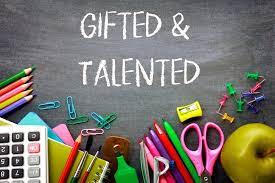The world is filled with a plethora of unique individuals, each possessing a diverse range of skills and talents. Among these people is a special group referred to as “gifted and talented.” These individuals exhibit exceptional potential in various areas, including academics, creative arts, and leadership. This article delves into the different aspects of giftedness and talent, the significance of nurturing such abilities, and methods to promote their growth.
Understanding Giftedness and Talent
Giftedness refers to innate intellectual potential, marked by remarkable cognitive abilities. The distinction between giftedness and talent lies in their development. While gifted individuals possess inherent intellectual ability, talented individuals excel in specific domains through a combination of innate ability, passion, and hard work.
Identifying Gifted and Talented Individuals
It is essential to identify gifted and talented individuals early in their lives to maximize their potential. Some common traits often found among these individuals include above-average intelligence; creativity; exceptional problem-solving skills; unusual focus or determination; heightened sensitivity and emotional intensity; advanced linguistic skills; or out-of-the-box thinking.
Challenges Faced by Gifted Individuals
Despite their extraordinary abilities, gifted individuals face unique challenges. These challenges include perfectionism; difficulty fitting in with peers due to varying interests or intellectual ability; underachievement due to lack of stimulation or challenge; asynchronous development (uneven intellectual, emotional, and social growth); or misdiagnosis of learning disabilities due to their unique traits.
Importance of Nurturing Giftedness and Talent
Nurturing giftedness and talent is crucial for several reasons:
1. Maximizing potential: Providing appropriate support allows these individuals to develop advanced skills that may contribute significantly to society.
2. Self-confidence: When encouraged effectively, gifted individuals build confidence in their abilities.
3. Emotional well-being: By understanding their unique needs, parents, teachers, and counselors can help gifted individuals navigate difficult emotions or social situations.
Strategies to Support Gifted and Talented Individuals
To promote the growth of gifted and talented individuals, various strategies can be adopted:
1. Differentiated instruction: Tailor education to match the learner’s level, ensuring they are sufficiently challenged and engaged.
2. Encourage creativity: Foster a learning environment that values originality, encourages experimentation, and allows for creativeexpression.
3. Enrichment programs: Participate in extracurricular activities or advanced courses tailored for gifted individuals.
4. Social support: Create opportunities for interaction with like-minded peers.
In conclusion, giftedness and talent represent a significant human potential that must be nurtured to bring out the best in these extraordinary individuals. By providing tailored support systems that cater to their unique needs, we can encourage their growth and raise generations of innovators who contribute significantly to the betterment of society.





